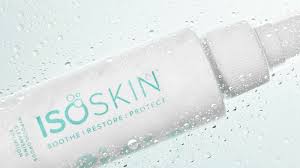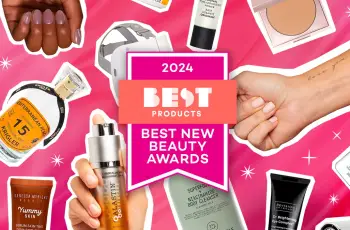
Hypochlorous Acid for Acne: A Gentle but Powerful Skincare Solution
Acne is a challenging condition that affects people of all ages, and finding the right treatment can often feel like an uphill battle.
Many products that target breakouts can cause redness, peeling, and dryness, leaving your skin more irritated than before.
This is why the growing popularity of hypochlorous acid has become so exciting in the skincare world.
Although the name might sound a little intimidating, hypochlorous acid (also known as HOCl) is one of the gentlest yet most effective treatments available for acne-prone skin.
Dermatologists, skincare enthusiasts, and influencers across social media have been highlighting its impressive benefits, especially as part of a minimalist and barrier-friendly routine.
In this comprehensive guide, we’ll explore everything you need to know about hypochlorous acid, including how it works, its benefits, how it compares to traditional acne ingredients, and how to add it to your daily regimen.
We’ll also discuss who it’s best suited for, potential side effects to watch out for, and which dermatologist-approved products you might want to try.
If you’ve been searching for a solution that calms inflammation, kills acne-causing bacteria, and supports skin healing without causing irritation, hypochlorous acid might be exactly what you need.
What Is Hypochlorous Acid?
Hypochlorous acid is a naturally occurring compound that is actually produced by your own body.
It is created by white blood cells as part of the immune system’s defense mechanism, and it plays an essential role in fighting off harmful bacteria and supporting wound healing.
Dermatologist Dr. Azadeh Shirazi explains that hypochlorous acid is well-known for its antibacterial and anti-inflammatory properties, which makes it an ideal skincare ingredient for sensitive or acne-prone skin.
Because it is already present in the body, HOCl is incredibly well-tolerated and less likely to trigger irritation compared to more aggressive acne treatments.
In essence, when you apply hypochlorous acid topically, you are harnessing one of your body’s natural defense molecules to heal and protect your skin.
Why Is Hypochlorous Acid Trending in Skincare?
Hypochlorous acid isn’t a brand-new discovery; it has long been used in wound care for its ability to kill bacteria and speed up healing.
What is new, however, is its growing presence in mainstream skincare products like facial sprays, toners, and cleansers.
This rise in popularity is linked to the broader trend of “skinimalism,” which emphasizes using fewer, gentler, and multifunctional products to achieve healthy skin.
Consumers are increasingly searching for solutions that work without disrupting the skin barrier, and hypochlorous acid fits perfectly into this philosophy.
Platforms like TikTok and Instagram have also played a major role in boosting its popularity, as dermatologists and beauty influencers have shared videos demonstrating its soothing benefits.
Benefits of Hypochlorous Acid for Acne-Prone and Sensitive Skin
Hypochlorous acid offers a wide variety of benefits that make it especially appealing to those struggling with acne, inflammation, or reactive skin conditions.
Here’s a closer look at how this ingredient can help improve your overall skin health:
Kills Acne-Causing Bacteria: Acne is largely triggered by the overgrowth of Cutibacterium acnes bacteria in clogged pores.
Hypochlorous acid is highly effective at reducing bacterial levels on the skin without stripping its natural protective barrier.
Unlike harsh treatments like benzoyl peroxide, it does not excessively dry out the skin or cause painful peeling.
Reduces Redness and Inflammation: Breakouts often come with redness and irritation, which can make acne appear worse.
HOCl has natural anti-inflammatory properties that help calm the skin and minimize swelling around blemishes.
This makes it particularly beneficial for people dealing with cystic or inflamed acne lesions that are tender and slow to heal.
Speeds Up Wound Healing: Because hypochlorous acid is a key player in wound care, it helps accelerate the healing of damaged or broken skin.
If you’ve popped a pimple or are recovering from a severe breakout, using HOCl can reduce the risk of scarring and encourage faster recovery.
Soothes Sensitive or Reactive Skin: HOCl is non-toxic, non-comedogenic, and free from alcohol, making it an excellent option for individuals with sensitive or easily irritated skin.
Unlike chemical exfoliants or retinoids, it won’t disrupt the skin barrier or cause uncomfortable dryness.
Safe for Use Around the Eyes: Many acne treatments must be kept away from the delicate eye area, but hypochlorous acid is gentle enough for full-face application.
This is ideal for those who experience breakouts on their eyelids, temples, or areas close to the eyes.
How Does Hypochlorous Acid Compare to Traditional Acne Treatments?
If you’re wondering how HOCl stacks up against ingredients like salicylic acid, glycolic acid, benzoyl peroxide, or retinoids, the answer is that it works in a complementary way.
Salicylic acid is excellent for exfoliating and unclogging pores, but it can sometimes cause dryness or irritation when used too frequently.
Glycolic acid improves skin texture and tone but may be too harsh for those with highly sensitive or reactive skin.
Benzoyl peroxide is effective at killing bacteria quickly, yet it can bleach fabrics, trigger redness, and strip the skin’s moisture barrier.
Retinoids remain one of the most effective long-term acne solutions, but they often cause purging, dryness, and sun sensitivity, especially during the adjustment period.
Hypochlorous acid, by contrast, is extremely gentle and works well alongside these stronger treatments to provide soothing, antibacterial, and healing support.
However, it may not be powerful enough to treat deep cystic acne entirely on its own, making it best used as part of a broader acne-fighting routine.
Are There Any Side Effects of Using Hypochlorous Acid?
One of the biggest advantages of hypochlorous acid is that it carries a very low risk of side effects.
According to dermatologist Dr. Marisa Garshick, most people can use it daily without experiencing irritation, even if they have sensitive or compromised skin barriers.
The only potential issue arises with highly concentrated formulas—those above 500 parts per million (ppm)—which can occasionally cause mild irritation.
Most skincare products are carefully formulated with safe concentrations of 100–200 ppm, making them suitable for everyday use.
As with any new product, it is wise to perform a patch test on a small area of skin before applying it to your entire face.
How to Incorporate Hypochlorous Acid into Your Skincare Routine
Using hypochlorous acid couldn’t be easier because it is usually available as a convenient spray or mist.
Here’s a simple way to add it to your regimen both morning and night:
Step 1: Cleanse. Begin by washing your face with a gentle, non-stripping cleanser appropriate for your skin type.
Step 2: Apply Hypochlorous Acid. Mist directly onto your face or apply with a cotton pad, gently pressing it into your skin.
Step 3: Moisturize. Follow with a hydrating moisturizer to lock in moisture and protect the skin barrier.
Step 4: Sun Protection. In the morning, finish your routine with a broad-spectrum sunscreen rated SPF 30 or higher.
You can also use HOCl throughout the day as a refreshing mist, especially after workouts or exposure to pollution.
An added bonus is that hypochlorous acid can be used to sanitize your phone, makeup brushes, or pillowcases, which can help reduce acne-causing bacteria on surfaces that touch your skin.
Recommended Hypochlorous Acid Products
If you’re ready to try hypochlorous acid, consider these dermatologist-approved options:
Tower 28 Beauty SOS Daily Rescue Facial Spray: A cult-favorite facial mist that is perfect for calming redness and supporting breakouts.
Prequel Universal Skin Solution Dermal Spray: A multipurpose treatment that can be used on the face and body for irritated or acne-prone skin.
SkinSmart Antimicrobial Facial Cleanser: Ideal for gym-goers or those prone to frequent breakouts, this cleanser also works as a post-workout refresh.
Eczemol by Loma Lux: Although designed for eczema, it is gentle enough for acne-prone or highly sensitive skin.
When selecting a product, always check the concentration and choose one formulated specifically for sensitive or acne-prone skin types.
Who Should Use Hypochlorous Acid?
HOCl is suitable for virtually anyone who experiences acne, irritation, or sensitivity.
It is particularly beneficial for teenagers, athletes, or anyone who reacts poorly to stronger acne treatments like benzoyl peroxide or retinoids.
Those who are often on-the-go will appreciate how easy it is to apply and reapply HOCl sprays, making them convenient for travel or busy schedules.
It’s also an excellent addition to any routine focused on repairing and strengthening the skin barrier after irritation.
Final Thoughts: Should You Add Hypochlorous Acid to Your Routine?
Hypochlorous acid may not be the strongest acne treatment available, but what it lacks in potency, it makes up for in gentleness and versatility.
It helps kill bacteria, calm inflammation, and speed healing without disrupting the skin barrier or causing dryness.
For those who feel stripped and irritated by traditional treatments, HOCl can be a soothing alternative or a valuable companion product.
While it may not fully replace retinoids, benzoyl peroxide, or prescription medications for severe acne, it can certainly enhance your existing routine.
Adding hypochlorous acid is a small but powerful way to support your skin’s natural healing abilities and restore balance to acne-prone or sensitive complexions.


